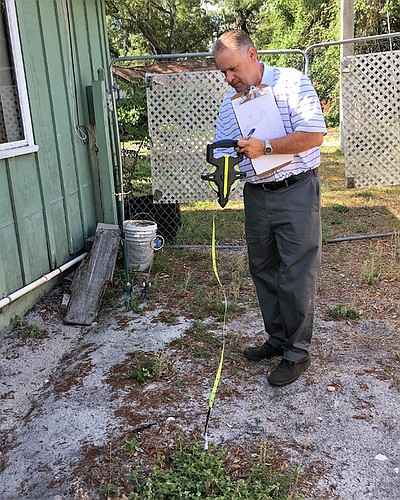
By Caren Burmeister, Contributing writer
It’s satisfying when you win the bidding war on the house you’ve wanted, but it can be disappointing to come that far and then lose the battle over the appraisal.
Jacksonville home prices have risen so quickly that sometimes appraisals — based on past sales of similar homes — can’t keep up. Since banks lend only the appraised fair market value, the mortgage will now fall short of the higher bid for the house.
Be prepared to renegotiate the contract or bring cash to the closing, in addition to the down payment, said Terrell Newberry, owner of Century 21 Atkins Realty and past president of the Northeast Florida Association of Realtors.
It’s all part of the downside of a hot seller’s market.
About 13 percent of Northeast Florida homes sold for more than their original listing price, according to NEFAR’s April report. In the last year, median sales prices have risen 8.3 percent, up to $195,990.
The story behind the statistics is inventory, which has been declining since September 2014, said NEFAR spokeswoman Melanie Green. There is a 3.5-month supply, well below the healthy balance of five to six months of inventory.
“The inventory is particularly low,” Green said. “It’s definitely affecting pricing. It’s harder for people to buy a home and they may not be able to find financing.”
Competition for a limited supply of homes can drive bidding wars and contract prices that can’t be substantiated by an appraisal. As a result, the buyer and seller have to find a way to cover the gap.
“We’re seeing it occur more often,” Newberry said, particularly for homes on the waterfront, in new desirable subdivisions or in neighborhoods with high-performing schools.
“It’s the exception, but it is a possibility and a greater possibility than it was 18 to 24 months ago,” he said.
An appraisal is an expert estimate of a home’s value based on recent sales of nearby comparable homes in size, age and other features.
Appraisals can lag market prices because comparable sales within the last six months — the typical time frame sought by lenders — don’t yet reflect market changes.
“We run into it occasionally,” said appraiser Anthony Megas, a residential property appraiser with Florida Valuation in Jacksonville and president of the Northeast Florida Chapter of the Appraisal Institute. “The underwriters are pretty picky. It does make it a bit challenging.”
Newberry and his clients have twice avoided the deal breaker.
In one case, where the appraisal was roughly $20,000 short of the contract price, the buyer and seller agreed to meet in the middle. The buyer brought an extra $10,000 cash to closing and the seller agreed to knock $10,000 off the price.
Sellers have an incentive to work it out, Newberry said. “The appraisal will stick with that house for a while,” he said.
In the other case, Newberry said, a client who feared the appraisal wouldn’t substantiate his offer got a personal loan from a family member, taking the appraisal and the mortgage off the table.
There are other options for homebuyers who lack wealthy relatives or extra cash in savings. One of them is known as a “time adjustment,” a method that involves finding adequate evidence to support an improving market, Megas said.
In the case of a seller’s market, the fresher the sale the better, he said. That requires sales data from the last few months. Appraisers can evaluate current property listings and, with some luck, persuade Realtors to share information about homes under contract, which is proprietary information.
“We have to paint a picture for the underwriter and support a time adjustment,” Megas said.
“But that’s not always going to happen. Unfortunately, there are cases where we can’t support contract prices.”